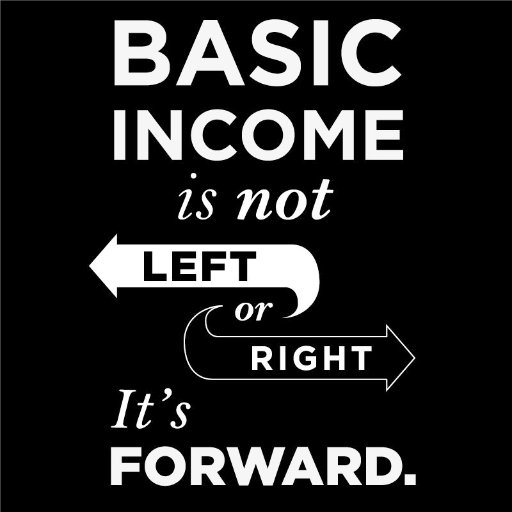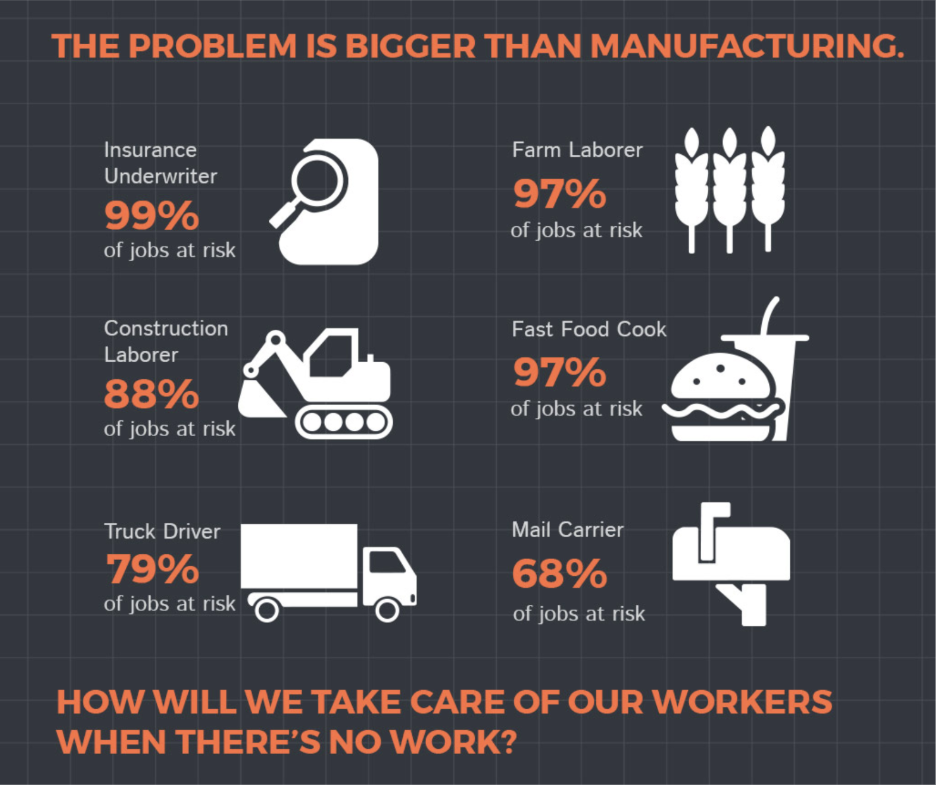Universal Basic Income: a definition
Money paid to all, idealized as the same amount regardless of age, employment status, ability, income.
Brought up as a way to simplify social safety net, potentially save money on social services, and equalize post-industrial income.
Positives: socially-minded, boosts those most in need.
Negatives: could be implemented in uneven or dystopian ways, costly.
What’s at stake?
Source: Futurism.com
Where’s the inspo?
Individuals and groups have been proposing UBI for hundreds of years, based on observations that deep inequality is wrong from ethical and social standpoints, economically imbalanced, and morally wealthy communities can share so why not do so.
It’s come up again in recent years given rising concern over new technologies like AI and self driving cars to reform the need for certain sectors of jobs (see above.)
If work fundamentally changes – if the needed labor of life has been completed then we needn’t, as a society, plod along inventing ways to force people to earn money – but then what?
“The transformational framing is that UBI is a chance to radically re-think our relationship to work, to free us from bullshit jobs (to use David Graeber’s term), to de-couple the economy from perpetual GDP growth and consumption, and to usher in a creative and spiritual renaissance on the planet as people will no longer live simply to keep body and soul together.
The tactical innovation is the crypto-currency model, which creates complementary currencies that bypass existing debt-based systems and power structures by using blockchain smart contracts to establish community trust agreements.” — The Rules – Blockchain to generate UBI.
Where’s the money?
How much will this cost, and who’ll pay? Three sources seem possible:
- Current Silicon Valley pilots get money from philanthropy.
- Revenue models, like the Alaskan Fund, where the state gets profit from the sale of oil and redistributes it, in the form a check to everyone. Research about the distribution of the Alaska fund indicates that 99% of people still work while getting a basic income, see video).
- Or taxes, as many, including the former SEIU head, propose:
“Lowrey thinks a U.B.I. in the United States should be a thousand dollars monthly. This means $3.9 trillion a year, close to the current expenditure of the entire federal government.
To pay, Lowrey proposes new taxes on income, carbon, estates, pollution, and the like.
But she is also curiously sanguine about costs, on the premise that few major initiatives balance out on the federal books: “The Bush tax cuts were not ‘paid for.’ The wars in Iraq and Afghanistan were not ‘paid for.’ ” When the country wants to launch a big project, she insists, the double joints and stretchy tendons of a giant, globalized economy come into play.”
Sources: Futurism.com and New Yorker July 2018.
Read and learn more:
The research is still out, but I don’t think it takes an MBA to assess that when you give people money, they have money and then use that money. For people with resources, it’s a bonus. For poor people, it’s life-changing.
I’m so curious to learn more, get more critical and visionary ideas, and see where this recurrent conversation goes.
Read and learn more at any of the links in this post, or check out this podcast on UBI: https://www.upstreampodcast.org/universalbasicincome2 for a balanced analysis.
Over here at Ride Free Fearless Money Research HQ (aka my dining room table), I’ve been deep in reading and numbers about economics for a few years.
I look for signals of money hacks, system design faults, and alternatives to capitalism. Experientally I know capitalism is not the only system: timebanking, mutual aid, collective ownership, cooperative projects and businesses, horizontal organizations all function, right now. I am part of lots of them and I know many of you are, too.
As Mark Fisher said, “It is now easier to imagine the end of the world than an end to capitalism” — but imagination is exactly what’s needed.
Just as there are terrible possible futures, there are thriving ones. We must remember this so we know where to point our bright energy in shadowy times.

